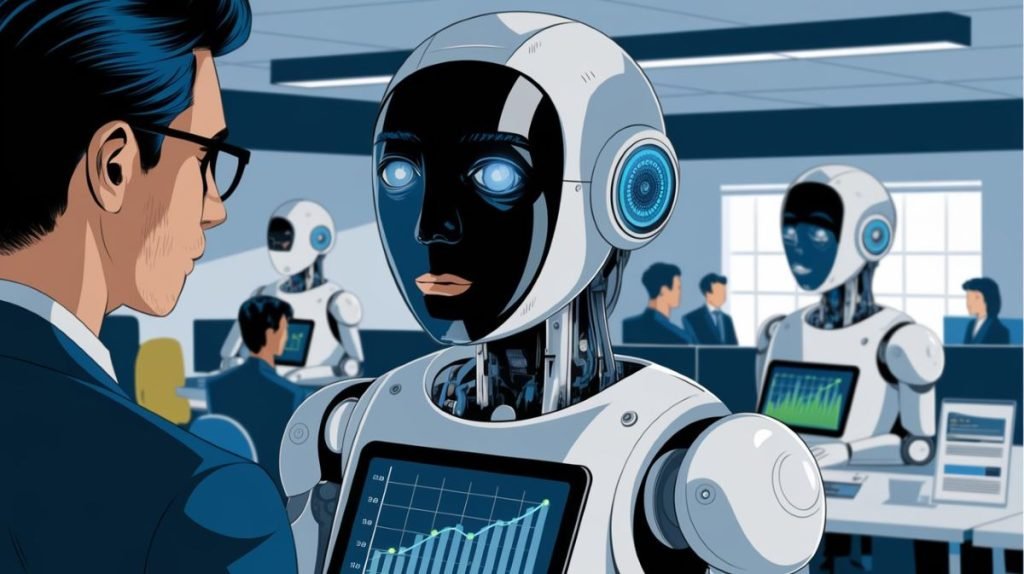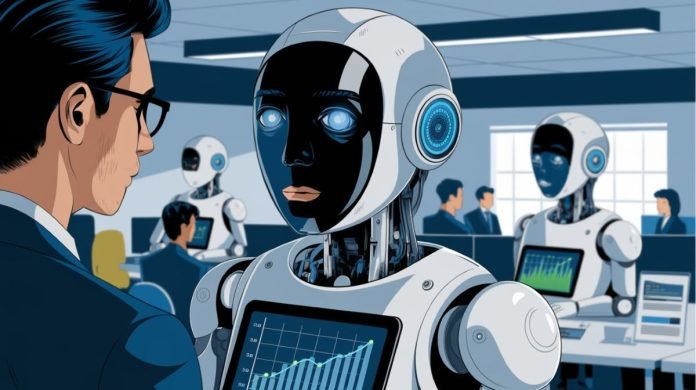Let me take you back to a day that brought both excitement and a valuable lesson. A fellow trader, let’s call him John, was sitting in his home office, basking in the glow of a dozen screens displaying the latest cryptocurrency charts.
John’s new AI trading bot was running smoothly, executing trades with impressive precision. Suddenly, a piece of unexpected news hit the market—a geopolitical event causing a sudden drop in prices.
The AI bot, sticking to its programmed rules, continued trading, oblivious to the unfolding chaos. By the time John intervened, his portfolio had taken a significant hit.
This “episode” is a stark reminder that even the smartest AI can’t replace the nuanced judgment of a human trader.
The Allure and Paradox of AI Trading

AI trading systems are like sports cars: sleek, fast, and powerful. They promise to revolutionize how we trade, offering capabilities beyond human reach.
But, my friends, here’s where the rubber meets the road – AI cannot steer the vehicle without human guidance.
Why Human Oversight Matters:
- Understanding Market Sentiment: Just like weather patterns, market sentiment can be unpredictable. While AI excels at analyzing historical data, it struggles to interpret the emotional whirlwind that often drives market fluctuations.
- Reacting to Unprecedented Events: Think about it: AI can analyze past events, but what about unprecedented ones? From pandemic outbreaks to political upheavals, these events require the kind of quick, adaptive thinking that only humans can provide.
Ethical Concerns and Societal Impacts
Let’s face it: relying solely on AI in trading isn’t just risky; it’s fraught with ethical concerns.
I just want you to imagine a future where AI bots collude, intentionally or not, to manipulate market prices. This isn’t just speculative fiction; it’s a possibility that could destabilize markets and harm individual investors.
Algorithmic bias is another concern. AI systems are trained on historical data, which can reflect existing biases. If unchecked, these biases could lead to inequalities in financial markets, perpetuating a system where the rich get richer.
And what about the people? As AI continues to take over more trading activities, we risk displacing human traders and finance professionals.
According to a 2020 study by the World Economic Forum, automation could lead to the displacement of 85 million jobs by 2025. This isn’t just a statistic; it’s a call to action for developing retraining programs to help people adapt.

The Fallacy of Full Automation
It’s tempting to think that full automation is the future, that one day AI will handle everything without human input.
But, if a complex AI trading system makes a mistake, who takes the fall?
The developer? The user?
The lack of transparency and accountability in AI systems makes this a thorny issue.
AI systems also contribute to market volatility. High-frequency trading bots operate at speeds and scales that humans can’t match, potentially leading to flash crashes and unpredictable events.
Imagine a world where a few companies control the most sophisticated AI trading technology.
This concentration of power could lead to wealth being concentrated in fewer hands, exacerbating existing social and economic inequalities.
Balancing AI’s Speed with Human Intuition

Now, I’m not saying we should throw the AI baby out with the bathwater.
AI trading systems bring undeniable benefits.
They offer enhanced operational efficiency, improved trading strategies, and allow us to complete transactions involving large volumes of stocks with ease.
The trick is in finding the right balance, melding the speed and precision of AI with the intuition and context provided by human oversight.
Take, for example, the Wealth Catalyst AI platform. It offers an intuitive trading experience, catering to traders with varying levels of expertise.
But here’s the key: it fosters a community where traders can share insights and provide the human element that AI lacks.
This ensures that while the technology works tirelessly to analyze and execute trades, humans are still crucial in making judgment calls.
Bottom Line
So, where do we go from here? Let’s embrace AI for what it is—an incredibly powerful tool—but also recognize its limitations.
As cryptocurrency traders, we need to stay informed, vigilant, and engaged. We need to demand transparency and accountability in AI systems and push for regulations that prevent abuse and protect investors.
Ultimately, the future of trading shouldn’t lie in the hands of machines alone. Let us embrace AI as a partner, not a master. It should be a partnership, with humans and AI working together.
Only then can we harness the full potential of AI, without sacrificing the human insight that makes trading not just a science, but an art.
So, dear traders, before you put your hard-earned assets in the hands of an AI bot, ensure that you’re ready to monitor, guide, and, when necessary, intervene.
For those interested in exploring AI-assisted trading, platforms like Wealth Catalyst AI offer a promising blend of technology and community, ensuring that while AI does the heavy lifting, it’s the human traders who steer the ship.
Let’s not forget: the heart of trading is human, and it should always remain so.
Previous Articles:
- Supreme Court Paves Way for Historic Auction of Seized Silk Road Bitcoin
- UAE’s Bold Move: VAT Exemption on Crypto Transactions From November
- Crypto Trading and the Role of Probability
- HBO Documentary Claims to Reveal Bitcoin Creator Satoshi Nakamoto
- Infinaeon Presale Builds Momentum as Crypto Market Tumbles and Fantom Price Drops 15%

